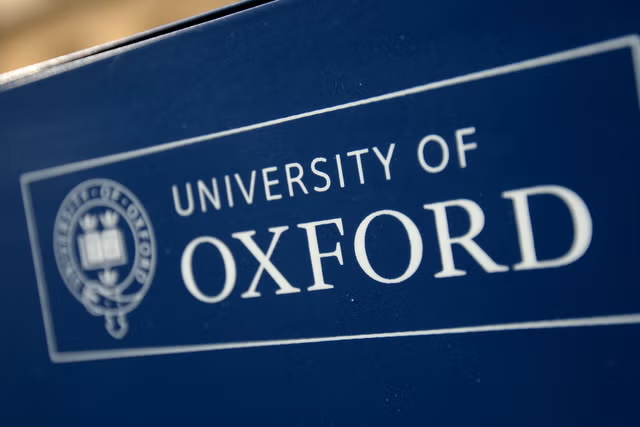Historic change has reshaped the UK’s higher education landscape as Oxford and Cambridge have fallen out of the top three positions in The Times and The Sunday Times Good University Guide 2026. It marks the first time in 32 years that neither university has featured among the top three, signaling a shift in academic prestige and performance across the country.
The London School of Economics and Political Science (LSE) retained its place as the UK’s top university for the second consecutive year. St Andrews held on to second position, while Durham University climbed to third — a significant leap that earned it the title of University of the Year 2026.
Both Oxford and Cambridge now share joint fourth place, a rare outcome in the history of British higher education rankings. The result reflects how rising competition, innovation, and improved teaching standards across other institutions are reshaping the traditional hierarchy.
A Turning Point for UK Universities
For decades, Oxbridge represented the summit of British academia. Their dominance across league tables often seemed unshakable. However, evolving priorities in education and new performance measures have opened opportunities for other institutions to excel.
In last year’s rankings, Oxford placed third and Cambridge fourth. Their joint fall this year continues the trend that began when LSE surged from fourth to first in 2025, disrupting the Oxbridge stronghold. St Andrews, known for outstanding teaching and student satisfaction, once again secured second place, proving its continued excellence.
Read More: Oklahoma Education Chief Cleared After Explicit Image Report on TV
Durham’s advance from fifth to third highlights the growing competitiveness of the UK’s academic landscape. According to Helen Davies, editor of The Times and The Sunday Times Good University Guide, this year’s rankings illustrate a vibrant race for excellence.
“In a very competitive top 10, Durham has climbed two places in a year, which is a significant achievement,” said Davies.
“It has outdone both Oxford and Cambridge, helping to push them out of the top three in our league table for the first time in the guide’s history. Its stellar academic performance was boosted by improvements in teaching quality and student experience.”
Durham University: A Rising Academic Power
Durham’s recognition as University of the Year 2026 celebrates more than rankings; it highlights years of focused investment in education, research, and student well-being. The university’s strong community environment and consistent graduate success contributed to its rapid rise.
Professor Karen O’Brien, Vice-Chancellor of Durham University, expressed pride in the institution’s achievement:
- “Durham is an outstanding place to study. We ensure that every student can grow and thrive here. Our loyal, engaged alumni are testament to the impressive career prospects that await our graduates.”
- Durham’s success mirrors a broader trend where students increasingly value universities offering high-quality teaching, personal support, and clear career pathways — not just prestige.
LSE Strengthens Its Leadership
LSE’s second consecutive win cements its position as the leading academic institution in the UK. Renowned globally for excellence in social sciences, economics, and politics, the university continues to expand its influence through research innovation and international collaboration.
This year, LSE also collected multiple awards, including University of the Year for Academic Performance, Russell Group University of the Year, and joint runner-up for University of the Year for Graduate Employment. These accolades highlight the university’s commitment to academic rigor and employability outcomes.
LSE’s success demonstrates the growing prestige of specialized universities that combine elite research with real-world impact — a model increasingly favored by students seeking both academic depth and professional readiness.

How the Rankings Were Decided
The Times and The Sunday Times Good University Guide remains one of the most influential resources for prospective students. Published annually since 1993, it evaluates universities based on detailed metrics such as:
- Teaching quality and student satisfaction
- Entry standards and academic performance
- Research output and impact
- Graduate prospects and employability
- Sustainability and student experience
These comprehensive criteria ensure a balanced assessment of both academic excellence and overall student life. The inclusion of sustainability and teaching quality metrics also reflects modern student priorities and institutional accountability.
Top 10 UK Universities in 2026
- London School of Economics and Political Science (LSE)
- University of St Andrews
- Durham University
- University of Oxford (joint)
- University of Cambridge (joint)
- Imperial College London
- University of Bath
- University of Warwick
- University College London (UCL)
- University of Bristol
University of Strathclyde narrowly missed a top-10 finish but earned the title of runner-up University of the Year, a reflection of its continuous progress and strong regional reputation.
Regional University Leaders
This year’s guide also highlights the best universities across regions, acknowledging the growing number of students who choose to study locally due to financial and lifestyle factors.
- London: London School of Economics and Political Science
- North and North East: Durham University
- East: University of Cambridge
- Midlands: University of Warwick
- South West: University of Bath
- South East: University of Oxford
- Northern Ireland: Queen’s University Belfast
According to editor Helen Davies, competition for places at top-ranked universities remains intense.
“Competition to get a place at our top-ranked institutions continues to grow, leaving some lower-tariff universities with recruitment challenges,” she said. “Many more undergraduates are choosing to stay at home and commute, which is why this year we introduced awards for top universities in each region and those excelling in scholarships and bursaries.”
Oxford and Cambridge Remain Globally Elite
Although both universities have fallen from The Times top three, their global reputations remain strong. In The Guardian University Guide 2026, Oxford secured first place and Cambridge third — reaffirming their world-class standing.
These differing results emphasize that no single ranking defines overall quality. Yet the latest Times results do suggest that the competition for academic prestige in the UK is becoming more dynamic, with emerging institutions challenging centuries-old dominance.
The Future of UK Higher Education
The 2026 results mark a pivotal moment for British academia. Excellence is increasingly defined by innovation, inclusivity, and student experience rather than historical reputation. As universities like LSE, Durham, and St Andrews rise, the definition of “elite education” continues to evolve.
For Oxford and Cambridge, the message is clear: maintaining leadership requires adapting to modern expectations, improving teaching methods, and enhancing the student journey.
Full results of The Times and The Sunday Times Good University Guide 2026 will be published in a 96-page supplement with The Sunday Times on September 21, and available online at thetimes.com/uk-university-rankings.
Frequently Asked Questions
Why did Oxford and Cambridge drop from the top three in 2026 rankings?
Oxford and Cambridge fell due to improved performance from LSE, St Andrews, and Durham, especially in teaching quality and student satisfaction.
Which university ranked first in The Times and Sunday Times Good University Guide 2026?
The London School of Economics and Political Science (LSE) ranked first for the second consecutive year.
What position did Durham University achieve in 2026?
Durham University climbed to third place and was named University of the Year 2026 for its exceptional academic and student experience.
How are universities ranked in The Times Good University Guide?
Rankings are based on factors such as teaching quality, research performance, graduate prospects, sustainability, and student satisfaction.
Are Oxford and Cambridge still top global universities?
Yes. Both remain among the world’s leading universities and continue to top other major global and UK rankings, including The Guardian’s 2026 Guide.
Which universities made the UK top 10 in 2026?
The top 10 include LSE, St Andrews, Durham, Oxford, Cambridge, Imperial, Bath, Warwick, UCL, and Bristol.
When will the full 2026 university rankings be published?
The complete rankings will be released in a 96-page supplement with The Sunday Times on September 21, 2026, and online at thetimes.com/uk-university-rankings.
Conclusion
The 2026 Times and Sunday Times Good University Guide marks a defining moment in UK higher education. For the first time, Oxford and Cambridge have stepped out of the top three, giving way to a new generation of leading institutions like LSE, St Andrews, and Durham. The shift reflects an evolving academic landscape where innovation, teaching quality, and student experience weigh more heavily than tradition alone.

